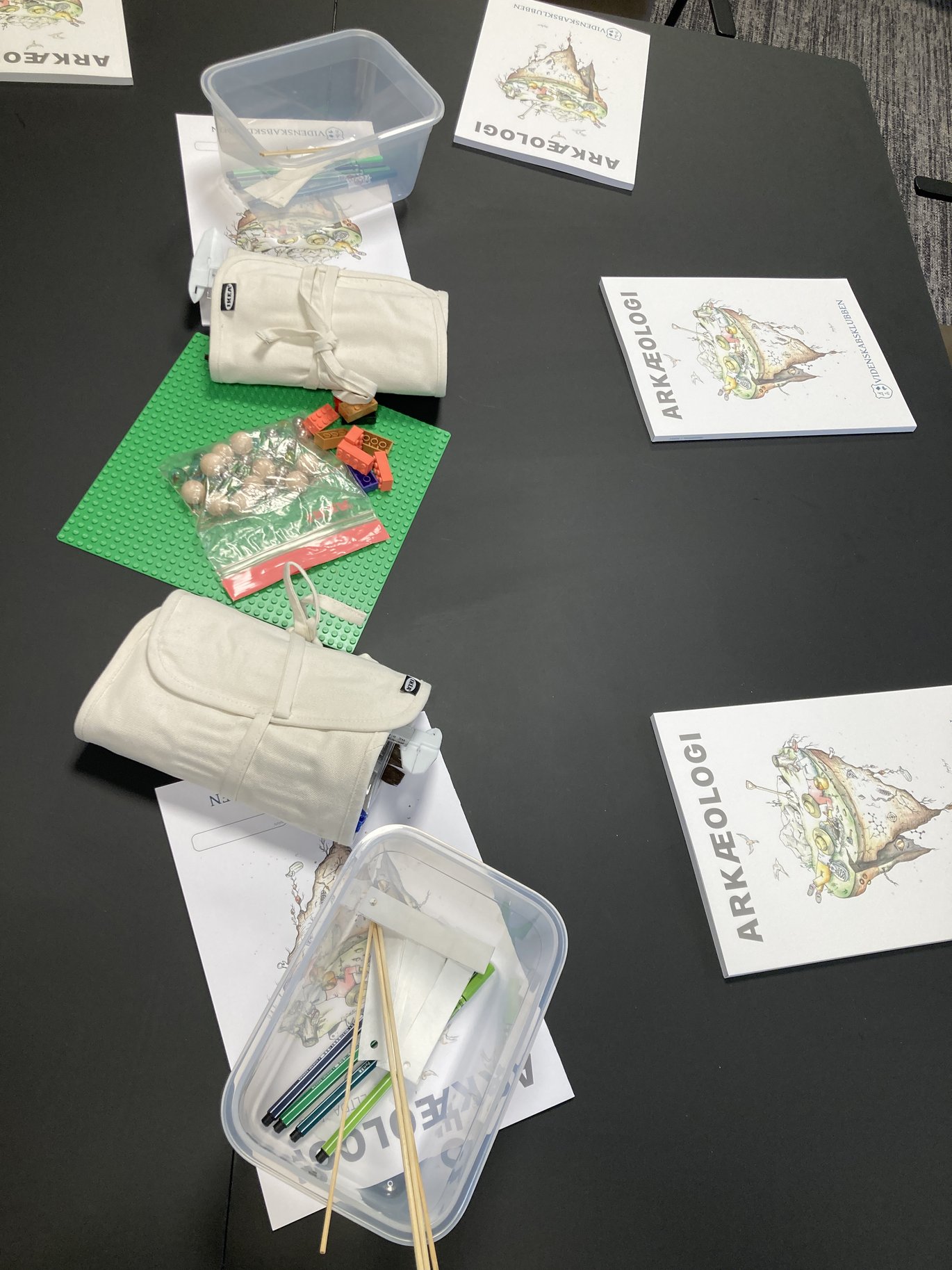Mentor workshop in Odense
In week 43, the archaeology program will be launched at 10 schools across Denmark.

To prepare the mentors for their role in guiding the young "mini-researchers" through the seven-week program, a mentor workshop took place on 10 October in Odense. A total of 400 gymnasium students gathered to learn more about their responsibilities as mentors in Videnskabsklubben’s outreach initiatives. Of these, around 40 mentors will take on the responsibility of leading the archaeology program. Julia Steding and Kirstine Haase welcomed them in two separate groups, explaining the vision behind the archaeology program and its goals. Meeting the mentors was an inspiring and essential first step for this newly developed initiative. “It’s fantastic to see so many mentors willing to volunteer their time to teach younger students. We’re confident that the program is in excellent hands and that the mentors will do a splendid job. And hopefully, they’ll learn something new along the way too,” Julia Steding remarked after the successful conclusion of the workshop.
The mentors were introduced to archaeology as a scientific discipline and then engaged in some of the program’s newly designed activities. One task involved arranging historical events in their correct chronological order. While the mentors demonstrated impressive knowledge of the human past, there were a few surprising moments. “What? Floor heating existed 7,000 years ago?” one mentor exclaimed in disbelief. Yes, indeed – people used the heat from a burning hearth to head up the stone floors in their homes in Korea around 5000 BC.
In another hands-on activity, mentors used coloured pens, coffee filters, LEGO, and marbles to simulate the workings of a mass spectrometer. This exercise aimed to ensure the planned activities would work effectively in a classroom setting and that the mentors would be well-prepared to guide the mini-researchers through their learning experience. A key part of the day involved meeting experienced mentors who shared tips and advice on how to foster a positive, inclusive environment. This gave the new mentors a chance to exchange ideas, reflect on their roles, and build confidence in leading their groups.
